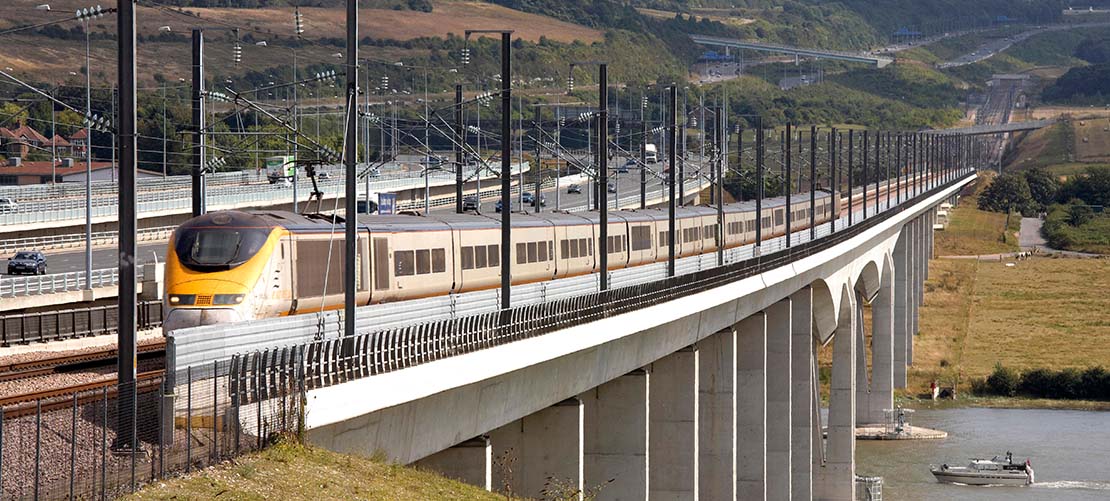Labour's plan for rail

Today, the Labour party has announced its transport policy which aims to renationalise the country's rail network within five years. Whilst there is plenty of detail beneath the key headline, with polls suggesting Labour is likely to be the party in government following the next General Election, this policy is one which the industry is rightly taking seriously.
Key policy headlines include:
- Labour intends to continue with proposals to set up a publicly owned Great British Railways ("GBR"). As readers will no doubt be aware, this is a continuation of existing policy, which largely has cross-party support. The intention is to bring decision-making on track and train into one body, who will provide a "guiding mind" for the industry. What will be important is that the Department for Transport ("DfT") does not sit as a "directing mind" behind this guiding mind. It is entirely appropriate for the DfT to set policy, but it must then be for GBR to deliver – and have the autonomy and flexibility to do so, without the DfT micromanaging everything it does. Given Labour's statement that Secretary of State agreement will be necessary for "significant decisions around services and infrastructure", further detail is needed on how much autonomy and flexibility GBR will actually have. GBR is likely to need a long-term strategic plan to be able to deliver everything it needs to. Some of the current Rail Reform Bill might be taken forward, but it's fair to say that Labour's plans go further and more amendments to existing legislation are likely to be needed.
- As National Rail Contracts (NRC) expire with private operators, the operations will be taken back into the public sector and managed by GBR, with "leading experts" brought into GBR to do so. Labour considers this to be a cost-free approach, as contracts will simply not be re-awarded as they expire and it expects to bring most, if not all, operations into the public sector within its first term of government. However, the approach has been criticised with trade body Rail Partners commenting "…nationalisation is a political rather than a practical solution which will increase costs over time. Creating a thriving railway for customers and taxpayers does not have to be an ideological choice between a monopoly railway in public hands and one that delivers private investment and innovation through franchising." The potential loss of innovation and entrepreneurialism offered by the private sector seems to be a real issue. We note that each of the existing publicly-operated services by Directly Operated Railways (including LNER, Northern, TransPennine and SouthEastern) all do so under a Services Contract with the Department for Transport, which has similarities to the NRC model. It is difficult to see at this stage, therefore, how a change in the owner will lead to a change in outcomes, without something different being done.
- Renationalisation does not include open access operators (such as Grand Central, Lumo and Heathrow Express), the privately owned freight or rolling stock companies. It also appears that devolution will be allowed to continue, with Metro Mayors and other devolved bodies being permitted to continue to contract out rail service operation to the private sector.
- Plans to establish a Passenger Standards Authority to:
- Combine and streamline the functions of the Office of Rail and Road and the Transport Focus watchdog.
- Hold GBR accountable for its performance and passengers would be given price guarantees for future fares.
Whilst a new authority with the passenger forming its heart sounds grand, the reality is that behaviours matter and the appetite of the new authority to really hold GBR to account is are what will matter. That could easily have been achieved by incentivising existing bodies to better hold the industry to account: so we will have to see what behaviours are really driven by this new body.
- Giving greater certainty to the supply chain is an area that the Railway Industry Association has welcomed, with a long term plan offering more visibility of the pipeline and opportunities for the supply chain, allowing greater ability to plan ahead, in contrast to the stagnation in rail supply chains we have seen in the past five years or so. This includes having a long term strategy for rolling stock – which following recent news about manufacturing in Derby, is also likely to be welcomed.
- Some of the other aims for the renationalised industry which have been stated are:
- Reducing cancellations and introducing a simplified (but, as Labour has expressly made clear, not necessarily cheaper) rail fares system: this was already an aim of reform. A "best fare guarantee" meaning a set price for fares is also proposed.
- Improving the passenger experience, with better wi-fi being one of this morning's headlines. The balance between incurring costs and generating revenues has been a key industry debate since the Emergency Measures Agreements and Emergency Recovery Measures Agreements were introduced during the pandemic. Any appetite for incurring additional costs under a nationalised model to deliver an improved passenger experience is an interesting dilemma which, if Labour do get into power, will need to be resolved. No doubt thoughts will go back to the pre-privatisation British Rail, whose funding (and ability to invest) was highly political – and needs to be avoided at all costs. Interestingly, though, in announcing the plan this morning, Louise Haigh said that Rachel Reeves has not yet agreed that the estimated £2.2 billion in savings resulting from this policy can be re-invested back into rail services.
- Cost-savings for the taxpayer (approximately £2.2 billion a year, although this is just over £600 million more than had already been budgeted through existing industry reform and it is not yet clear where those additional savings will be made). It is interesting to note that current plans for industry reform include the "modernisation of working practices" and Labour has committed to sitting back down with the unions, with ticket office closures being ruled out. How modernisation and the union relationship will work together, rather than opposite each other (as has recently been the case) will be an interesting path to tread.
- Setting clear objectives and targets for passenger services to support “successful” open access and freight operators.
Interestingly, Keith Williams, who was tasked with a "root and branch" review of the industry over five years ago, has indicated that Labour's proposals are largely consistent with his proposals published as part of the "Williams-Shapps Plan for Rail" and latterly the "Plan for Rail" following a change in the Secretary of State for Transport.
No doubt more will emerge as the policy is debated, but the direction of travel seems clear.




